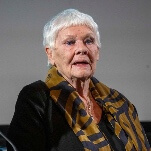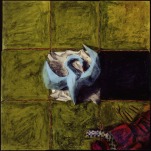After half a century of relentless witness, it's hard to believe there are any new takes on the Holocaust memoir, but Helga Schneider has found one. When she was 4 years old, her mother abandoned her husband, daughter, and infant son to devote herself to the Nazi party. Schneider endured an unloving stepmother who warehoused her in a boarding school, then the deprivations of postwar Berlin, when Allied soldiers shot curfew-breakers on sight and nearly everyone stole or starved. Thirty years later, Schneider met her mother again and learned that she had been a member of the Waffen SS, chosen as a guard at Ravensbruck and Auschwitz-Birkenau.
Let Me Go, Schneider's brief and wrenching memoir, chronicles her next meeting with her mother, 27 years later. Informed by a family friend that her mother could die at any time, she travels to a Vienna nursing home, where she finds her mother, at 87, only intermittently lucid. At their 1971 meeting, Schneider had been too horrified to ask questions about what her mother did at the camps, and why. Now, she's determined to know.
Her discoveries paint a complex portrait of an preternaturally uncaring woman, someone able to poison babies without blinking, but who nonetheless begs her daughter to call her Mutti, or "Mommy." Schneider's mother assisted the infamous Nazi doctors in their medical experiments—amputating limbs and creating septic conditions in the wounds so that the progress of infection could be observed. Her contribution was to hold women down while their body parts were sawn off. She confesses to one twinge of guilt, on an occasion when she sent a female Resistance fighter, a former colleague of hers, to work in the camp brothel, and heard later that she had died of a venereal disease. Even in that case, her Härteausbildung (dehumanization training) saw her through, she announces half proudly and half pleadingly.
Shaun Whiteside's translation of the 2001 German original version of Let Me Go flows with literate flair over the turbulent terrain of Schneider's experience. Although that experience is unusual in the extreme, it produces the same probing reflection on the extent of human evil that is the hallmark of the Holocaust memoir. Schneider, a German victim of the war if ever there was one, nonetheless implicates herself in the Nazi madness: She remembers her wholehearted participation in the beating of a Jewish couple while at the boarding school. Like the ties of blood that prevent her from abandoning her mother the way she was abandoned, the ties of a common history bind the Germans so closely that victim and perpetrator mix.








































